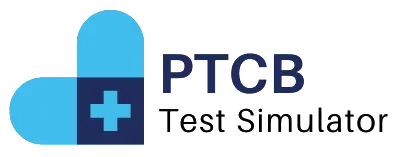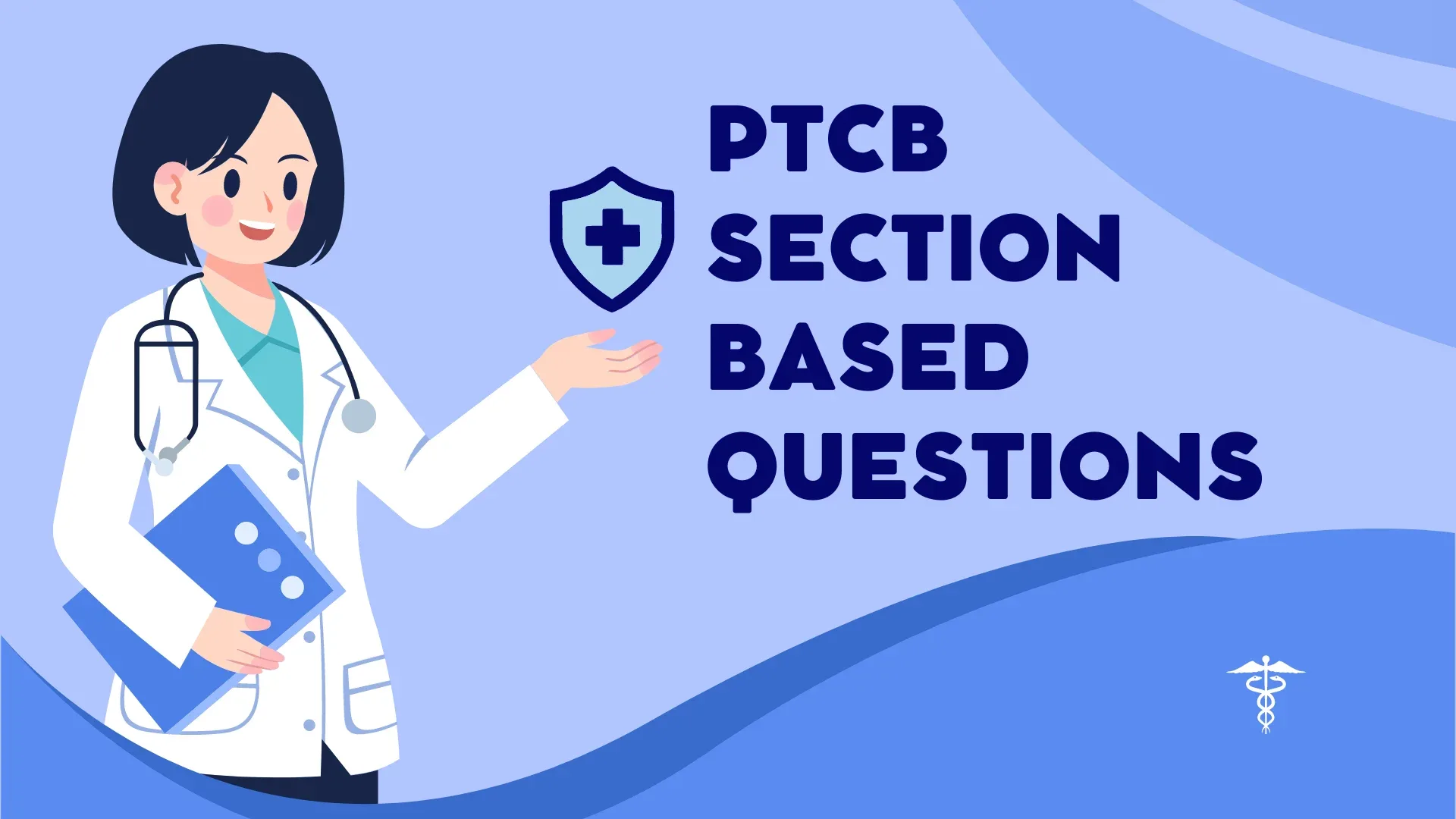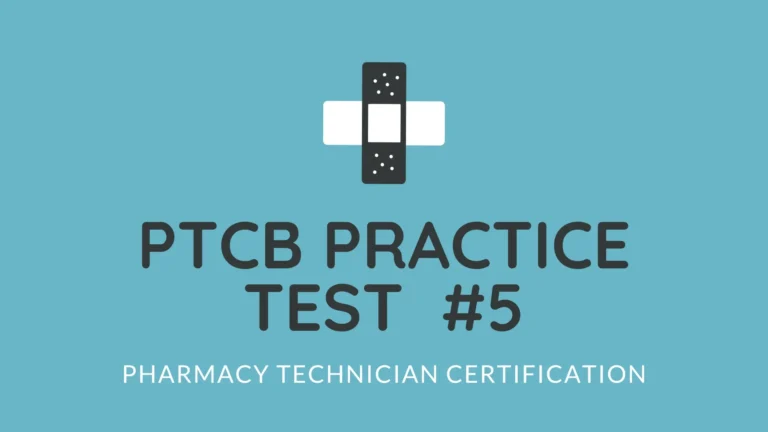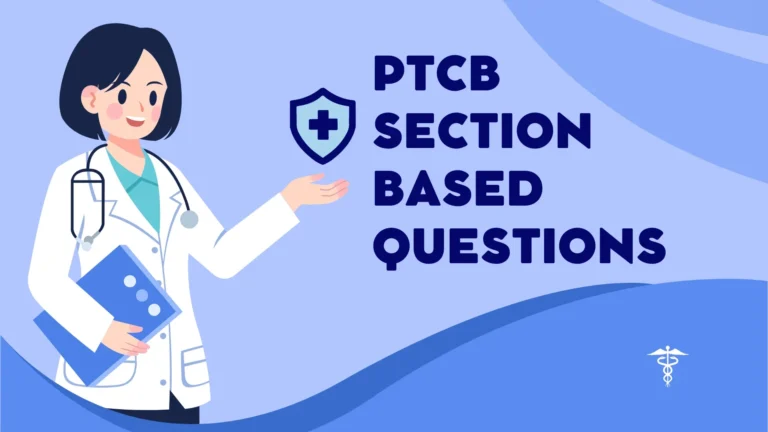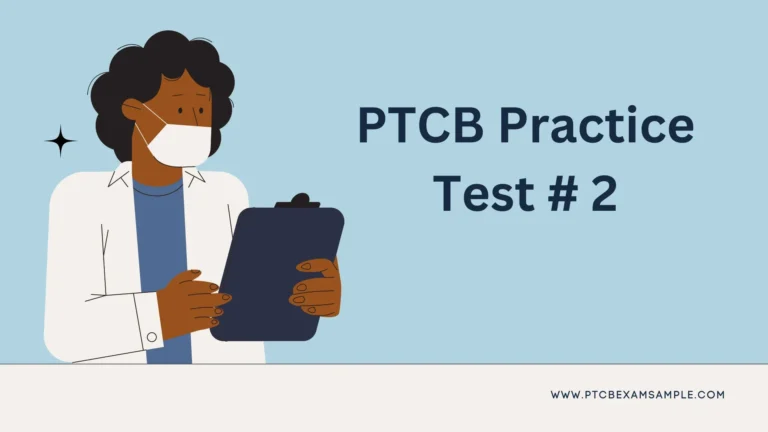SIDE EFFECTS QUIZ!
It is important to understand the side effects of medications. PTCB Exam Study Guide will help you pass your Pharmacy Technician Certification Board exam. Pharmacy technicians must understand common side effects. They should know what to do to treat them and how to notify pharmacists. We have included a side effect quiz in this PTCB Exam Guide to help prepare you for the test and your role as a pharmacy technician. The PTCB Exam Study Guide also includes tips to help you master the topic as well as common scenarios faced by pharmacy technicians.
Try More Practice Tests
It is essential to know the side effects of medications
Unintended side effects may range in severity from mild to severe. It is vital that pharmacy technicians understand side effects.
- Patient Security. Recognizing side-effects helps patients avoid medication errors, and receive the appropriate care.
- Drug Counseling: Techs can help pharmacists provide medication counseling for patients. This includes informing the patient of any potential side effects.
- Interactions Knowledge of adverse effects and drug interactions helps to identify possible drug interactions.
PTCB Exam Guide: Side Effects Quiz
Use the quiz below to assess your level of knowledge about common drug side effects. You can use this quiz to test your knowledge and prepare yourself for the PTCB Exam.
Antihypertensives Side Effects
Which of the following is a common side effect of angiotensin-converting enzyme (ACE) inhibitors like lisinopril? A) Dry cough B) Insomnia C) Weight gain D) Constipation
Answer: “A”) Dry cough
Explanation Ace inhibitors used to treat hypertension can often lead to a dry persistent cough. This is due to an accumulation of bradykinin. Bradykinin is a substance that plays a role in inflammation and dilation of blood vessels. It is essential to know this for PTCB Exam Guide.
Statins: What are the Side Effects?
According to the FDA, statins may cause: A) muscle weakness and pain B) insomnia C) dry mouth D) increased appetite
Answer: a) Muscle weakness and pain
Explanation The statins that lower cholesterol can lead to muscle weakness or pain. This condition is known as Myopathy. Rarely, rhabdomyolysis can develop, which is a breakdown of the muscles that may lead to kidney injury.
Ask 3: What are the side effects of antidepressants?
Sexual dysfunction, hair loss, increased appetite and bradycardia are all common side effects of SSRIs such as fluoxetine.
Answer: A) Sexual dysfunction
Explanation While SSRIs may be commonly prescribed for depression and anxiety, they can also cause sexual dysfunction. These include decreased libido or difficulty in achieving anorgasm. This side effect should be considered by pharmacy technicians when studying for the PTCB Exam Guide.
Proton Pump Inhibitors: What Are the Side Effects?
What side effects may occur if you use omeprazole for a long time? A weight gain, B osteoporosis or C insomnia.
Osteoporosis
Explanation PPIs used to reduce stomach acids can interfere with calcium absorption and lead to decreased bone mass over time. Understanding this is crucial when studying for PTCB Exam Guide.
Benzodiazepines: side effects
Alprazolam is commonly associated with the side effect of which one? (A) Sleepiness (B) Dry Skin C) Increased Energy D) Weight Loss
Question: (A) Sleepiness
Explanation Benzodiazepines used to treat anxiety have a sedative action, causing drowsiness. When assisting in medication counseling or preparing for PTCB Exam Guide, pharmacy technicians need to be mindful of this.
Antibiotics: What are the Side Effects?
Insomnia is the commonest side effect associated with antibiotics such as amoxicillin. A). Gastrointestinal disorders B) Hairloss C) High blood pressure D) Hypertension
Answer: A) Gastrointestinal disturbances
Explanation Broad-spectrum antibiotics like amoxicillin can disturb the gut microbiome and cause gastrointestinal problems such as diarrhea, nausea, or abdominal pain. The PTCB Exam Study Guide is based on the understanding of this side-effect.
Insulin side effects
The use of insulin can cause which side effect? A hypoglycemia, B weight loss, C high blood pressure and D dry mouth.
Answer: A) Hypoglycemia
Explanation If insulin is taken in excess or when meals are not eaten, it can lead to hypoglycemia. The PTCB exam study guide requires that you monitor and understand this side effect.
How to prepare for the PTCB Exam by mastering side effects
The following are some tips to help you prepare for the PTCB side effects section.
- Create flashcards: Print out cards that have drug names one side, and side effects common to both. The PTCB Exam Study Guide will be easier to remember and understand if you have created flashcards.
- Sort by Drug Class: Group drugs by drug classes to learn about the side effects that are common in each group. You can use this when you are preparing to take the PTCB Exam.
- Quizzes: Test your knowledge on side effects by completing quizzes. It will allow you to determine areas of study that need further attention and help build your confidence before the PTCB Exam Guide.
- Know Serious Effects : You should be aware of life-threatening or serious side effects such as anaphylaxis. This is crucial for patient safety as well as the PTCB Exam Study Guide.
- Ask Pharmacists : To gain insight into the real world scenarios of medication side effects, ask pharmacists for advice.
Following these tips, and practicing on the PTCB Exam study guide’s quiz, will give you a strong foundation to understand medication side effects. It is this solid understanding that will contribute to your success in passing the Pharmacy Technician Certification Board Exam.
You can also read our conclusion.
It is important for pharmacist technicians to be able to recognize the possible side effects associated with medications. This is a key part of passing the PTCB examination. The PTCB Exam Guide offers a complete approach for learning side effects. This quiz, along with the accompanying explanations, is a great way to learn about them. Focusing on these subjects and doing similar quizzes will help you to improve your knowledge for the Pharmacy Technician Certificate Board examination. You’re on the right track to becoming a certified pharmacist technician.
